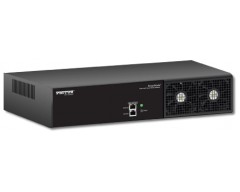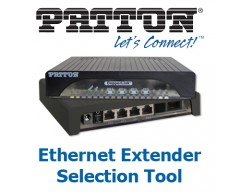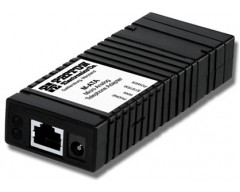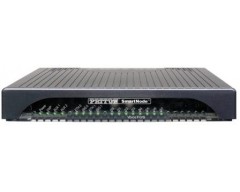Patton SmartNode 10300A - Control Host
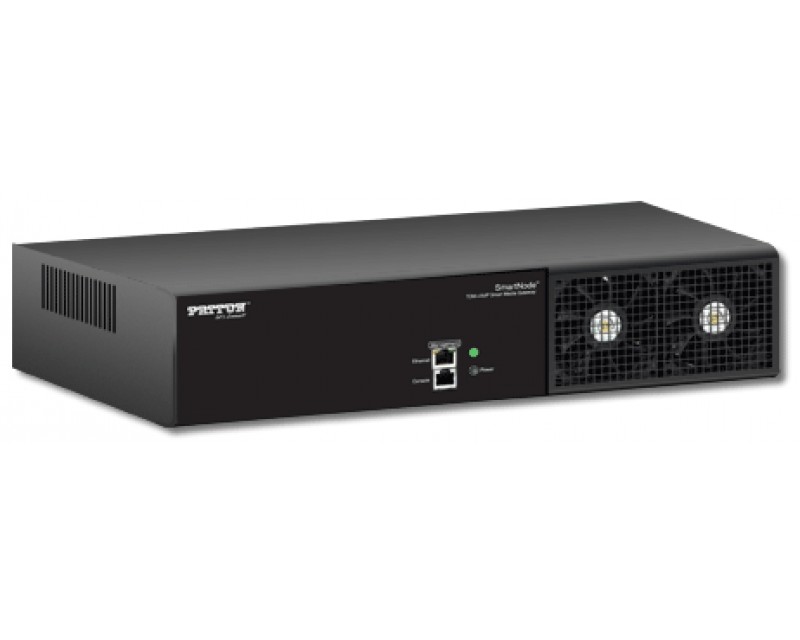
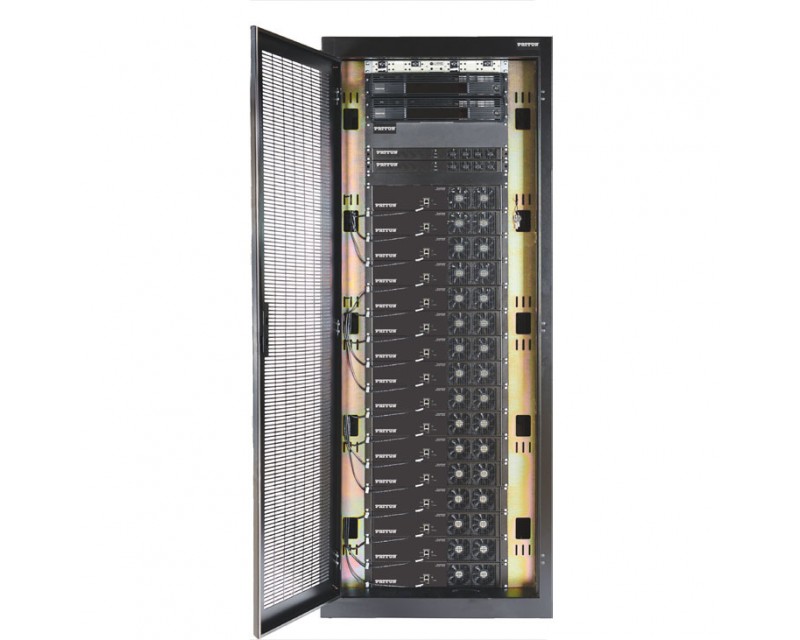


- Stock: Approx. 1-3 Weeks
- Model: SN10300A/CTRL/RUIR
- Description: TDM+VoIP SmartMedia Gateway, Control Host
- Brand: Patton Electronics Co.
Patton SmartNode 10300A - Control Host
TDM+VoIP SmartMedia Gateway
Service providers are adding VoIP capabilities to their networks, whether to reduce costs when interconnecting with other carriers, to cost-effectively build out their network footprints, or simply to transport voice traffic across their IP backbones. This can be best accomplished using a SmartNode 10300 Series media gateway, that enables the delivery of VoIP services by bridging voice traffic between the public switched telephone network (PSTN)—based on time-division multiplexing (TDM)—and IP networks such as the Internet. Whether sitting at the network core or at the edge, SmartNode media gateways enable service providers to introduce VoIP into their networks while maintaining the quality and the reliability of traditional TDM networks.
TDM interfaces
Service providers, whether providing local, long-distance or international voice services, are interconnected with a multitude of other providers using T1/E1/J1, DS3 or STM-1 links. It is critical for service providers to be able to rapidly establish new interconnections without having to always deploy new devices. SmartNode 10300 Series media gateways therefore offer flexibility and can be configured to support T1/E1/J1, DS-3 or STM-1 interfaces.
Signaling and control protocols
Just as flexibility in the selection and deployment of TDM links is a key requirement for service providers, the need to support multiple signaling protocols across various carrier partners is just as important. Each SN10300 media gateway provides support for the concurrent use of ISDN, SS7/C7, CAS (R2), SIP, and SIGTRAN signaling in the same device. The ability to provide both switching and conversion across multiple TDM and IP signaling protocols at once is paramount to enabling the operational flexibility and cost savings that drive service providers to expand their carrier relationships and converge their networks.
In parallel with the TDM and IP signaling protocols mentioned above, SN10300 devices also support the H.248 media gateway control protocol, which enables any H.248-compliant third-party softswitch to control a media gateway. While the softswitch manages call control interactions, the SN10300 handles transmission of call media as well as any required transcoding.
Media handling
Service providers will use one or more codecs on their VoIP networks according to their desire to save bandwidth, to provide a certain level of voice quality, or simply to interoperate with other VoIP devices or providers. The ability to support multiple different concurrent codecs and to allocate them in real time based on traffic is the key to delivering true network convergence.
SmartNode 10300 gateways feature extensive support for various wireline, mobile and IP telephony audio formats, delivering seamless transcoding in real-time. The media gateways ship with support for G.711, G723.1, G.726, and G.729ab right out of the box, with no additional license fee required. They also offer optional support for mobile and IP vocoders such as AMR, AMR-WB (G.722.2), GSMFR/ GSM-EFR, EVRC/QCELP, G.728, G.729eg, and iLBC. SN10300 gateways offer independent dynamic codec selection per channel. This means that it is possible to assign different vocoders to different channels, on a channel-by-channel basis. The devices can then run all of these codecs concurrently and do so with no impact on system performance.
SN10300 gateways also provide unparalleled support for Internet-based fax, also known as Fax over IP or Fax relay, using the T.38 protocol, which is used to carry fax communications over an IP network. (They also support the T.30 protocol for fax over the PSTN.)
System density
SN10300 gateways feature the industry’s highest system density in a 2U form factor. Beside the capital savings achieved by purchasing less units of equipment, system density also provides operational cost savings in the form of reduced co-location fees as well as lower power and cooling costs.
Energy efficiency
For many, if not most, service providers, the payoff from reducing energy use can be particularly impressive; typically, for every watt of power required to operate a device, another watt is required to cool it. The SN10300 media gateways can play a major role in reducing energy costs, with an average two-thirds less power consumption than competing products of similar capacity.
Provisioning and maintenance
For network convergence efforts to contribute positively to revenue and profitability, service providers must maintain their reputation for uptime and availability during the introduction, operation, and maintenance of new services. The SN10300 offers an operations, administration, maintenance, provisioning (OAM&P) solution. OAM&P enables the service provider to perform the initial setup of the SN10300 media gateway and any subsequent maintenance operations. These range from the simple, such as the collection of statistics and alarms, to the more complex, such as system configuration changes, the addition of new hardware or software components, and the application of software patches or software upgrades.
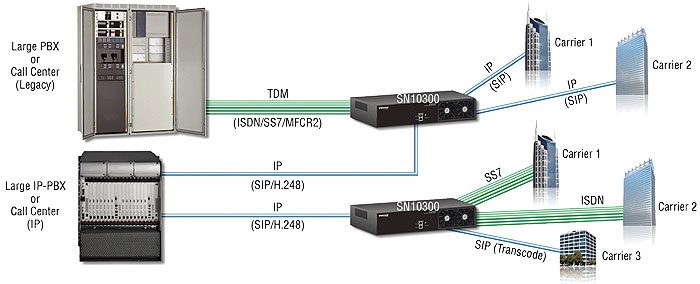




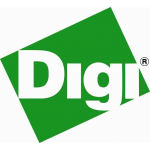
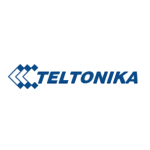
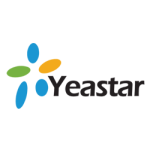
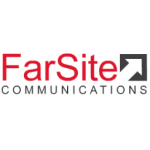
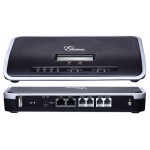


 Product Data Sheet
Product Data Sheet